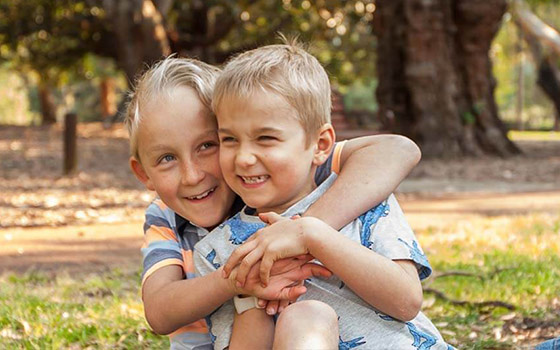Search

Here we recognise donors who have made cumulative gifts of $10,000 and above to contribute to children's health research at The Kids Research Institute Australia.

We earnestly thank every donor and also acknowledge those who prefer to remain anonymous.

Learn about the Supply Partner exclusivity and structure at The Kids Research Institute Australia.

Read about some of our current Supply Partners and how we've helped each other grow and develop as united organisations.

Tailored to spark curiosity and link directly to the Australian curriculum, our schools program engages young minds and bridges the gap between classroom learning and cutting-edge medical research.
Register for our Schools Program.
Research
A Phase III, randomized, controlled, observer-blind study to demonstrate effectiveness, immunogenicity and safety of GSK's meningococcal Group B and combined ABCWY vaccines when administered to healthy adolescents and young adults (Quintet)Jennifer Peter Kent Richmond RN MBBS MRCP(UK) FRACP Clinical Research Manager Head, Vaccine Trials Group Jennifer.Kent@thekids.org.au Clinical
Research
A randomized, controlled, observer-blind, phase 1/2a study to evaluate the safety, reactogenicity, and immunogenicity of Ad26.RSV.preF in RSV-seronegative toddlers 12 to 24 months of ageJennifer Peter Kent Richmond RN MBBS MRCP(UK) FRACP Clinical Research Manager Head, Vaccine Trials Group Jennifer.Kent@thekids.org.au Clinical
Research
Acute viral bronchiolitis in infants and young childrenAnya Deborah Pat Jones Strickland Holt BSc MSc PhD PhD PhD, DSc, FRCPath, FRCPI, FAA Honorary Research Associate Head, Pregnancy and Early Life
Research
Alert Program®Emma Glenn Martyn Adams Pearson Symons BExSc, MPH BA (Education) PhD Candidate B.A. (Hons) PhD. Acting Research Officer; PhD student Director of
